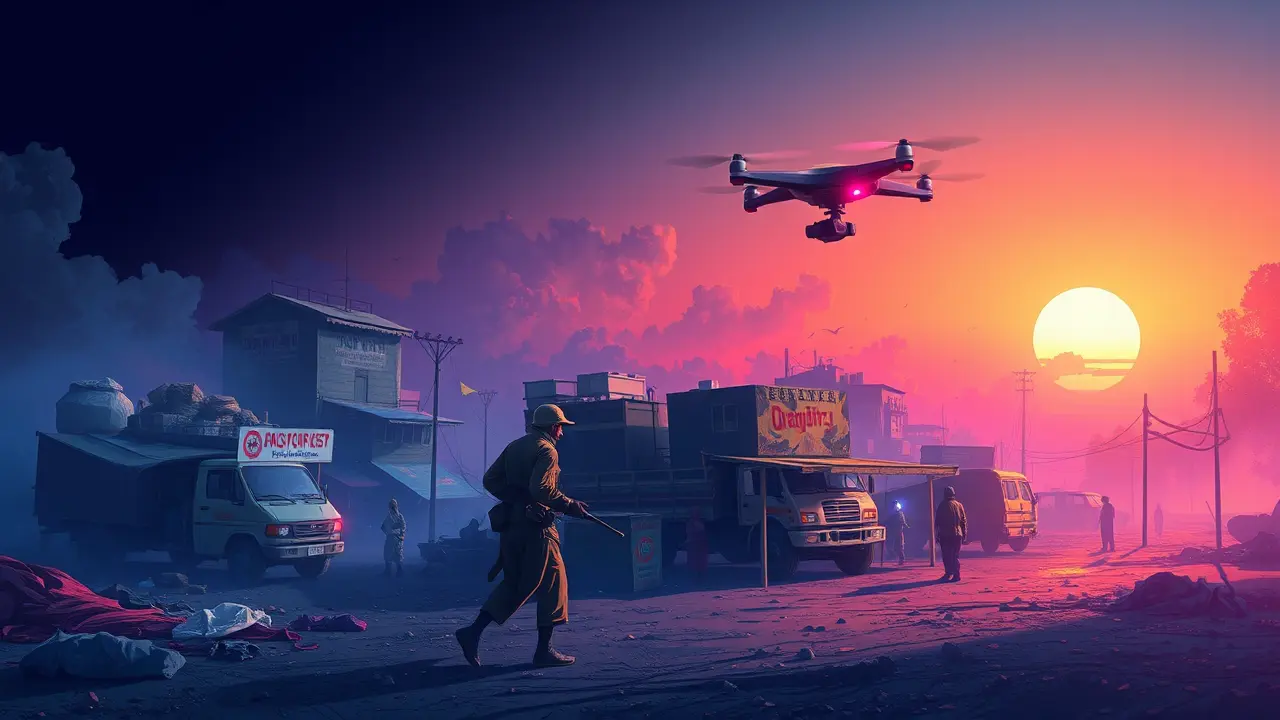Drone Strike Kills 60 in Besieged Sudanese City.
The news from El-Fasher hits with the brutal, unvarnished force of a dispatch from the edge of human endurance, a stark bulletin from a city that the world has too often relegated to the periphery of its conscience. For seventeen agonizing months, the Rapid Support Forces have maintained a stranglehold on this North Darfur capital, a siege that has methodically stripped a community of its food, its medicine, and its hope, reducing existence to a daily calculus of survival.The drone strike that killed 60 people isn't merely a statistic to be recorded and filed away; it is the catastrophic crescendo of a long-running symphony of suffering, an event that exposes the grim reality of modern conflict where technology delivers death from an impersonal sky onto a population already brought to its knees by hunger. The images emerging—though scarce and filtered through the chaos of war—speak of a marketplace turned into a charnel house, of civilians who had ventured out in desperate search of sustenance meeting a sudden, fiery end.This is not an isolated incident but a predictable outcome of a war that has festered since April 2023, pitting the Sudanese Armed Forces against the RSF in a brutal power struggle that has resurrected the ghosts of the Darfur genocide two decades prior. The RSF itself, born from the Janjaweed militias infamous for their scorched-earth tactics, now employs the tools of a more modern warfare, using drones to tighten its siege while the international community issues statements that ring hollow in the dust-choked air of El-Fasher.Aid agencies, operating on a fraying thread of access, have warned for months of an imminent famine, with reports of families surviving on leaves and the skeletal frames of children becoming a common, heart-wrenching sight. The strategic importance of El-Fasher, the last major city in the region not under RSF control, has transformed it into a prize to be won through the collective punishment of its inhabitants.Analysts fear this attack signals a terrifying escalation, a move from slow-motion starvation to rapid, indiscriminate slaughter, potentially foreshadowing a final, bloody assault to capture the city. The consequences ripple far beyond the immediate death toll, threatening to shatter the last remnants of the social fabric in Darfur, ignite further inter-communal violence, and create a humanitarian cataclysm that could destabilize the entire Sahel region.We are witnessing a failure of diplomacy, a failure of protection, and a profound failure of humanity, all converging on a single, besieged city where the very right to exist is now contested from the ground and the air. The people of El-Fasher are not just casualties of a war; they are hostages in a geopolitical stalemate, their lives a currency in a conflict whose architects remain insulated from the horror they orchestrate. As the sun sets over another day of terror and deprivation, the question remains not just how many more will die, but whether anyone is truly listening.
It’s quiet here...Start the conversation by leaving the first comment.
© 2025 Outpoll Service LTD. All rights reserved.
